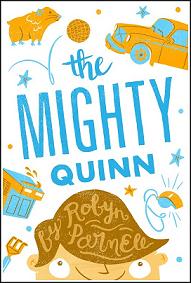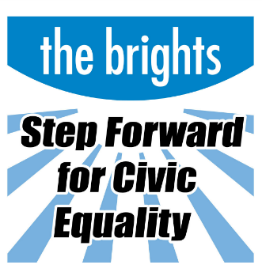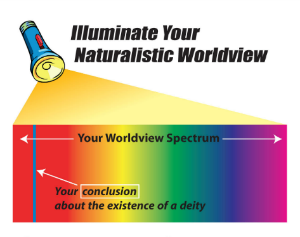The Brights' Bulletin
< Previous Issue | Next Issue >
Issue #120
(Note that links in archived Bulletin issues may no longer be valid.)
BRIGHTS BULLETIN -- MAY 2013
|
Navigation for Thinking Avid sailor (and noted philosopher) Daniel Dennett no longer has his boat, but he finds nautical notions useful in a new book, fresh off the press: Intuition Pumps and Other Tools for Thinking. If you are among the many Brights who appreciate Dennett’s strong leaning toward empirical approaches to philosophy (and religion), then you may want to give this book a look. In her New York Times review (“Philosophy that Stirs the Waters”), Jennifer Schuessler takes note of Dennett’s reknown for atheist activism and alludes to his being, among philosophers, “a ruthless slayer of metaphysical fancy.” But this Enthusiastic Bright is a pretty good tease, too, such as when he invents catchy titles (e.g., the “Sorta Operator”) for aspects of thinking that he identifies. Additional review (Boston Globe). In Intuition Pumps, Dennett pinpoints a number of lapses in thought process he’d surely like to see avoided. Surely you’ll want to dodge such missteps. (Who wants to be caught in sloppy thinking?) |
| Back to top |
|
New Route to Brights’ Books Intuition Pumps is the latest addition to the “Books by Brights” segment of the website. But, oh so many Brights are authors! Consequently, having reached a much too-o-o long listing of titles, we’re revamping the sector so you can better access books by individuals who have a naturalistic worldview, and they can write more books! Besides clustering titles somewhat differently, you’ll now find writings by folks like Dr. Dennett clustered together, so you can more readily examine and/or access additional titles by the same individual. (This change is in response to being asked to identify and include certain older titles of a number of notable Brights who have taken a public stance in support of the Brights movement.) Easy links in this segment will draw on the Brights’ affiliate status with Amazon.com. So, if you wish to acquire a book by this means, rather than independently, about 6% of the purchase price will be sent to The Brights’ Net at no extra cost to you. |
| Back to top |
|
“Interfaith” Misses the Boat On the occasion of the post-marathon Interfaith Healing Service held in Boston last month, organizers of the public commemoration included in the guest list a high level of civic participation. They included the governor and the U.S. president, as well as a broad spectrum of local community representation. However, event organizers provided no token of support for nontheists (e.g., humanists) in the occasion for healing and unity. A firmly expressed desire for inclusiveness (from local humanist leaders) went unheeded. This was disappointing, especially given the contrasting abundance of religious representation. There’s a tendency for prominent public remembrances after misfortunes to be religious in character. This fact presents an ongoing challenge to those who support the civic vision of The Brights’ Network. Social acceptance and civic equality necessitate that such commemorative events will be all-embracing. Yet in public memorials and commemoratives, there often is no recognizable acknowledgement of citizens who have a naturalistic worldview who undergo the sadness and distress of fellow human beings. |
| Back to top |
|
Toward Broader Conversation and Action (USA) Shared concerns about the absence of recognizable nontheistic representation in the Boston “healing” event has translated into more nontheists coming together and pressing for subsequent change. Among the activities in the weeks following the Boston bombing was the promoting of a petition organized by Greg Epstein of the Harvard Humanist Community. Communications among various national leaders of naturalistic-based organizations led many leaders to add their signatures to the petition. Their cooperative thrust indicates a broadly shared desire that the community of reason be included if “interfaith representation” is part of public “community unity” events. Clarification: Signatories of the HHC petition perhaps misunderstood the role of national officials in organizing the Interfaith Healing Service. Although President Obama participated in the Boston commemoration, neither the White House nor the Special Assistant to the President and Executive Director of the White House Office of Faith-based and Neighborhood Partnerships was responsible for the planning of the event or the event guest list. |
| Back to top |
|
Insights from Brights April found contributors at BloggingBrights.net grappling with issues of mixing “Faith and No Faith.”
In his recent post, Umwelt Utahpia looks to the “interfaith” remembrance that followed the Boston marathon bombing. In light of one amputation victim having been a volunteer in the Harvard Humanist Community, the absence of secular representation from the seemingly “official” memorial was painful to many. Despite requests to organizers to include at least token representation of the non-religious residents and citizens of Boston, appeals were ignored. Issue #2: A mixed couple starts out believing their love will conquer all differences. But when children come along, will it?
|
| Back to top |
|
International Brights Forum Report April in the Forums saw a serious request for advice in the delicate area of reconciling relationship partners of differing worldviews in this Topic. How should one deal with the tensions that may erupt when a conflict of worldviews becomes an issue in an intimate partnership? A strikingly civil romp through subjects from spiritism to biological evolution (it really would be difficult to summarize!), in which a diversity of views from hard-bitten rationalism to open-minded panpsychism are tested against each other is found in the Topic titled "Mind and Reality". It's quite a read, which explores in some depth the differing standards of evidence used by people of different viewpoints to arrive at their theories of the world. If you haven't created an account in the Forums, it takes just a minute or two, and we'd love to read your thoughts on these or any subjects! |
| Back to top |
|
Classroom Poster Updates Status of Additional Printing: Thank you if you responded to the Equinox appeal for support of the poster project, enabling students to follow the natural physical and biological changes on earth, across time. Funding received so far is sufficient to get our per-copy costs down around $20, but that’s definitely not as low as we had hoped. So, although Brights Central is acquiring bids for another printing round, we would appreciate added support to boost us up to the next “quantity price level” prior to the printing. Would you care to donate? No Dark-Sky Posters: You may be aware that BC had obtained permission of the developer to recoup costs on the “off-color” copies of the Earth and Life: changes across time classroom posters from the earlier printing. You need to know that there are no more of these “dark sky” versions available. We have distributed at cost all copies and can no longer respond to Brights who have wanted to purchase one of those. Sorry! Teacher responses are so rewarding! Example: “Love the poster. Got hung up on our large wall right above all the tanks (snakes and fish and stuff). Looks great, and is an area often visited by students just glancing around. Love it. Thanks for such a great educational tool, and especially thanks for not charging for it.” (Teacher of Outdoor Education, Biology, Advanced Placement Biology) |
| Back to top |
|
A Book (for Young Readers) by a Bright The Mighty Quinn, by Robyn Parnell, would be a superb vacation read for middle grades readers. It provides youngsters with a narrative of the personal consequences of social and cultural dissension. Humorous and empathetic, too! Check for more details on the website. |
| Back to top |
|
Brights’ Logo Merchandise You can view or purchase any of the current logo items from the merchandise page. |
| Back to top |
|
Let There Be Brightness |
|
“Brightness” Is Broader A recent Publisher’s Weekly article by Kimberly Winston in the category “Religion” summarizes recent social changes in the United States as they relate to the publishing industry. “Unbelievers and Unashamed” goes one subtitle in the article, which is titled “Atheists, the Next Generation: Unbelief Moves Further into the Mainstream.” In the civic sense, such changes as reported (e.g., “nonbelief has become less stigmatized”) are definitely worthy of cheer. And yet, there is something narrow and incomplete and discomfiting at work in how the topic is treated. Unbelief. Nonbeliever. These are favorite media terms. They are also how many of us have defined our stance and ourselves. The identity is a resolute symbol of nonconformity. It is how many who have a naturalistic outlook display a sense of self-worth and dignity. But “nonbeliever pride” is hardly sufficient to serve as “bright pride.” In fact, status as nonbelievers may actually be a factor reducing culturally perceived humanity and civic worth of brights, and restricting their broader cultural influence. In the Religion Arena When we perceive and identify ourselves primarily by our agnostic or atheistic conclusion about whether there is or is not a god (or gods), we run the risk of diminishing broader aspects of productive participation as citizens. And, when others impose such an identity on us, like it or not, we find ourselves caught in a narrow cultural circle both circumscribed and “owned” by religion. The nonbeliever designation is quite clearly a “faith” designation. And to be characterized by what one does not believe is a negative designation when characterization of all the named religious faiths is based on what they do. Heretics. Unbelievers. Irreligious. Godless. Nontheistic. Such terms evidence the general cultural and political capacity of dominant religion to single out those who step outside recognized bounds. Of course, this faith focus has been useful to atheists and skeptics in certain ways. They are discovering like-minded citizens in their communities. Billboards and bus ads often tout the “doubts” and market the “Godless” aspects (giving God another advert each time, of course). In gaining a degree of notoriety, the focus has been helpful in highlighting for the broader citizenry that there are citizens who live outside the faith-delineated bounds. Yet, when these religion-based labels permeate society and are the entirety used to define us, the narrow and typically oppositional identity surely carries civic consequence. Certainly we are more than that? In the Civic Arena If you haven’t yet seriously thought about “nonbelief” and civic status, then two videos that touch on this issue may be of interest. Questioning of the nonbeliever term is not new. The Brights’ Net includes many individuals who have long distrusted the negative belief-focused designations. For example, on the Brights site, Hemant Mehta (The Friendly Atheist) and Paul Geisert (co-founder of the Brights’ Network) have shared their prior reservations in “Nixing Negations”. Another similar point of view on this issue was expressed very recently by an American politician. Senator Tom Harkin of Iowa spoke at the Secular Summit and Lobby Day for nontheistic Americans sponsored by the Secular Coalition for America. Audio of his April 26 presentation is online at the SCA website and includes this entreaty: “[P]lease, don’t refer to yourselves as “nonbelievers.” Further, he congratulates the audience on their taking positive actions to evidence their values and to enhance their civic stance, as follows: “We all remember Dr. Martin Luther King’s wonderful words, ‘The arc of the moral universe is long, but it bends toward justice.’ I would add, however, it doesn’t bend all by itself. It requires individuals who are willing to speak up and speak out. It requires affirmative acts of conscience and courage by those who have been excluded and discriminated against.” Promoting Your Positives? If there is the possibility that civic status is generally undermined by the focus on what we do not believe, then what alternatives exist that would enable us to press forward more constructively? Humanists, with their manifestos, appear to have a handle on a more comprehensive and holistic way of depicting themselves. Atheists need to work harder to define themselves beyond the religion arena. Skeptics, too, focus on certain cognitive habits of mind but have far more to offer society. At the least, Brights of all stripes need to shine a bright light on values and concepts that they stand for. Brights of all the varied identity stripes are far more than any single issue, but too seldom clearly show it. So, whenever persons who have a naturalistic worldview are identified solely by religion, their civic stature is diminished. |
| Back to top |
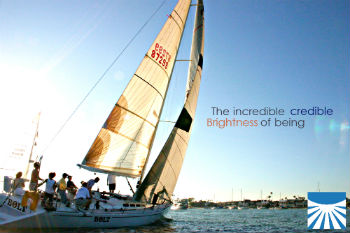
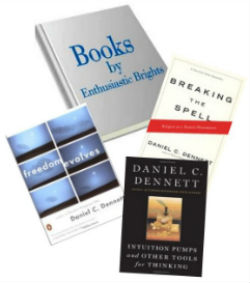
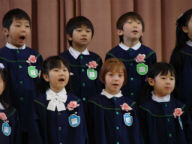 Issue #1: When a citizen is decidedly different from those around, can there still be inclusion?
Issue #1: When a citizen is decidedly different from those around, can there still be inclusion?

